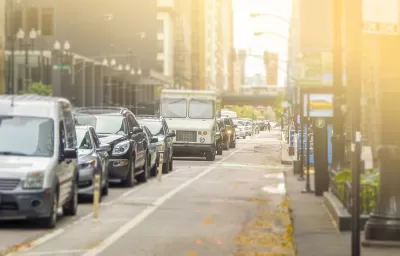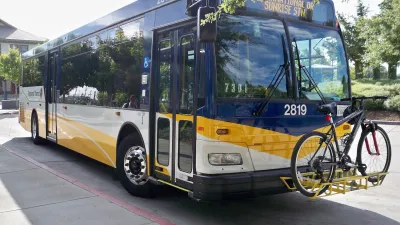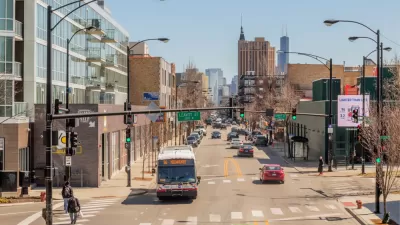The city plans to test automated technology that will issue citations for blocking or parking in designated bike or bus lanes.

Two new pilot programs designed to deter drivers from blocking bike and bus lanes in Chicago were approved by the City Council this week, reports Michael Brady in Smart Cities Dive. “The technology will automatically issue tickets for parking or standing violations in areas with posted signs, such as bike lanes and commercial loading zones, according to a city press release.”
The programs are part of the city’s effort to reduce traffic fatalities, which rose by more than 50 percent between 2019 and 2021. “By deterring drivers from illegally parking in bike lanes, bus-only lanes, bus stops, and crosswalks, we create better streets for all road users. We look forward to implementing the Smart Streets Pilots to evaluate how these initiatives can work best on a citywide scale,” said Chicago Department of Transportation Commissioner Gia Biagi.
The launch date of the pilot programs is unclear, but they will run until June 2025.
FULL STORY: Chicago tests new parking enforcement tech, smart loading zones

Maui's Vacation Rental Debate Turns Ugly
Verbal attacks, misinformation campaigns and fistfights plague a high-stakes debate to convert thousands of vacation rentals into long-term housing.

Planetizen Federal Action Tracker
A weekly monitor of how Trump’s orders and actions are impacting planners and planning in America.

In Urban Planning, AI Prompting Could be the New Design Thinking
Creativity has long been key to great urban design. What if we see AI as our new creative partner?

How Trump's HUD Budget Proposal Would Harm Homelessness Response
Experts say the change to the HUD budget would make it more difficult to identify people who are homeless and connect them with services, and to prevent homelessness.

The Vast Potential of the Right-of-Way
One writer argues that the space between two building faces is the most important element of the built environment.

Florida Seniors Face Rising Homelessness Risk
High housing costs are pushing more seniors, many of them on a fixed income, into homelessness.
Urban Design for Planners 1: Software Tools
This six-course series explores essential urban design concepts using open source software and equips planners with the tools they need to participate fully in the urban design process.
Planning for Universal Design
Learn the tools for implementing Universal Design in planning regulations.
Gallatin County Department of Planning & Community Development
Heyer Gruel & Associates PA
JM Goldson LLC
City of Camden Redevelopment Agency
City of Astoria
Transportation Research & Education Center (TREC) at Portland State University
Jefferson Parish Government
Camden Redevelopment Agency
City of Claremont





























